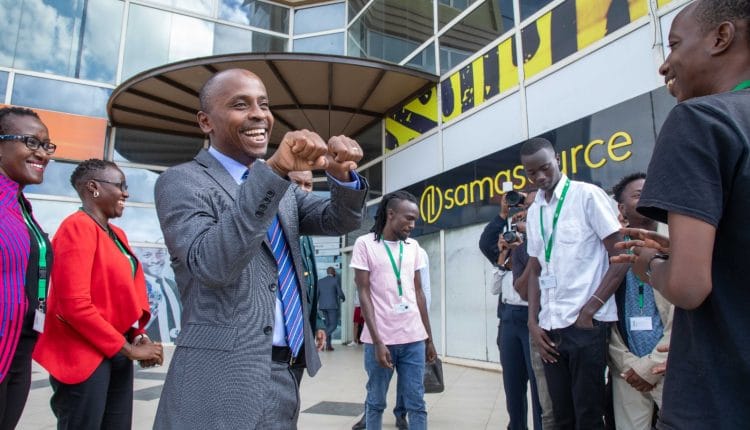Company Leverages Global AI Expertise to Boost Farming Productivity
To sustainably feed a growing population in East Africa, farmers must adopt AI tools to enhance productivity, increase yields, protect environments, and reduce costs.
Sama, a leading provider of data annotation solutions powering future AI models, has witnessed potential improvements firsthand through deployments for customers in Europe, North America, and the Middle East.
Drawing on this experience, Sama will continue partnering with companies to support initiatives to revolutionize agricultural sustainability in Africa, such as the East African Community’s Vision 2050 plan.
Speaking at the launch of a report on precision agriculture and the challenges AgTech models face, Annepeace Alwala, Sama’s Vice President of Global Service Delivery, emphasized the significant opportunities and urgent need for AI to better serve farmers and advance farming businesses while addressing global challenges like emission reduction and sustainable food production.
“Agriculture is facing a number of challenges—an increase in the demand for food and food safety, decreasing agricultural land, and labor shortages among them.
Our experience with clients in other parts of the world shows that computer vision applications, powered by Sama-quality data, are helping to address many of these challenges by automating tasks—from crop monitoring and weed control to livestock health and pesticide use,” Alwala said.
Weeds, pests, and diseases are major obstacles to achieving the productivity needed to meet the growing food demand globally. Up to 40% of crop production is lost to pests annually, and over $220 billion is spent on related plant diseases.
AI models like those evaluated by Sama identify pests, diseases, and weeds, leading to better crop management, reduced pesticide usage, and increased productivity.
For example, an autonomous machine developed by Carbon Robotics reportedly covers 15 to 20 acres a day and removes more than 100,000 weeds an hour using carbon dioxide lasers to kill the intruders.
Drone technology is increasingly being used to monitor crops and spray pesticides, enabled by advancements in sensors for data collection, computer vision models’ accuracy, and innovations in pesticide spraying equipment.
This information helps farmers make better decisions about crop rotation, irrigation, and pesticide use. Early detection allows farmers to act quickly and prevent widespread damage.
In collaboration with Precision AI, Sama has helped develop a computer vision model for a drone that can identify images at 0.55mm resolution while flying at 50 mph.
“With the increasing challenges faced by the agricultural sector in East Africa, our partnership with Precision AI demonstrates the transformative power of AI in farming.
We plan to deploy these solutions to enhance crop monitoring and optimize resource distribution. Our goal is to inspire similar advancements within the region,” Ms. Alwala added.



